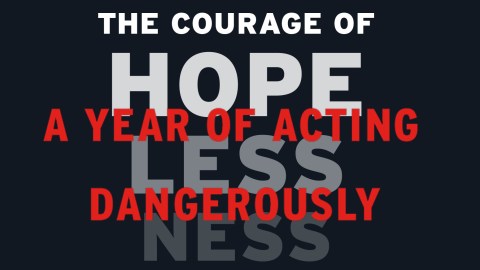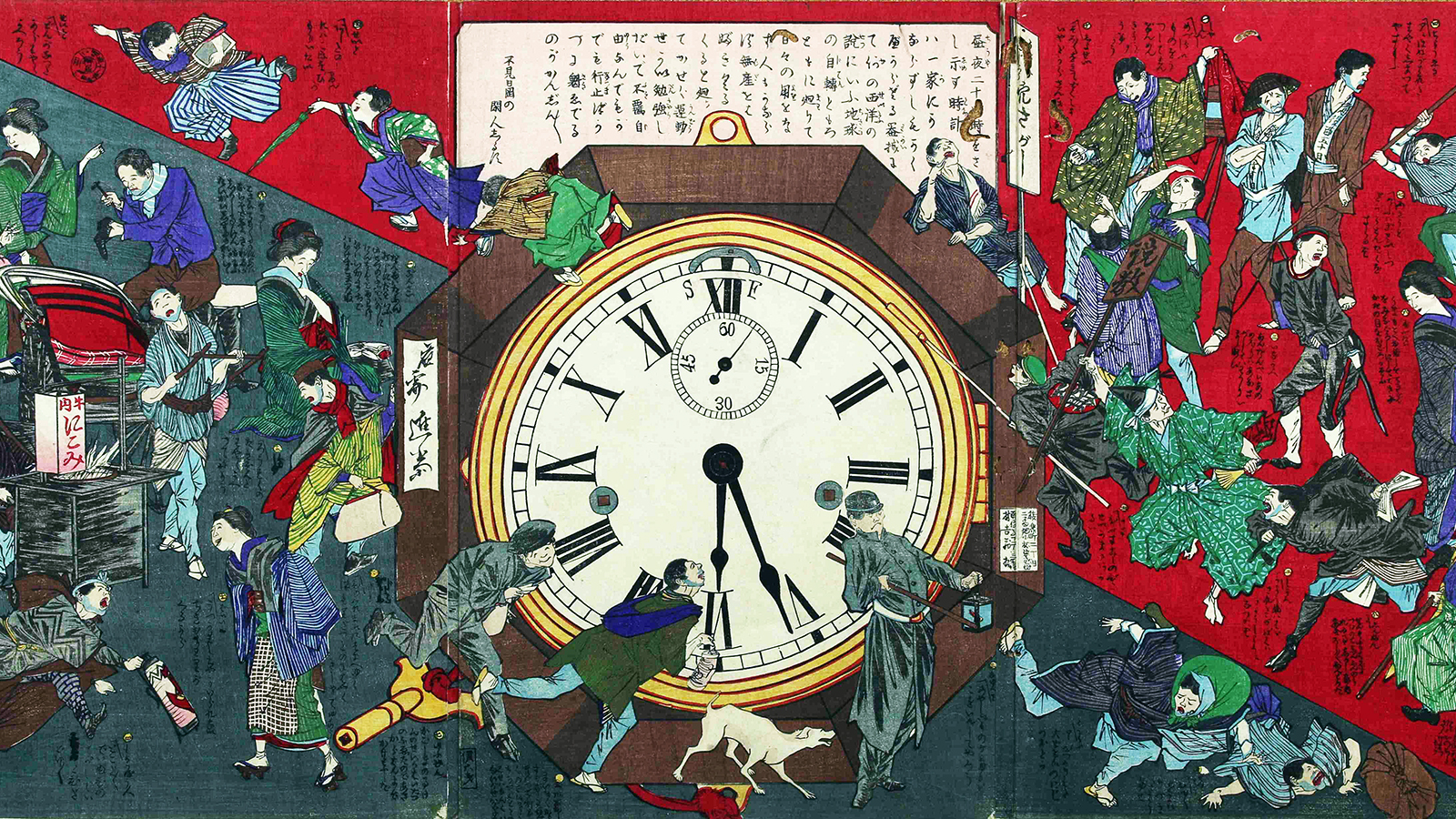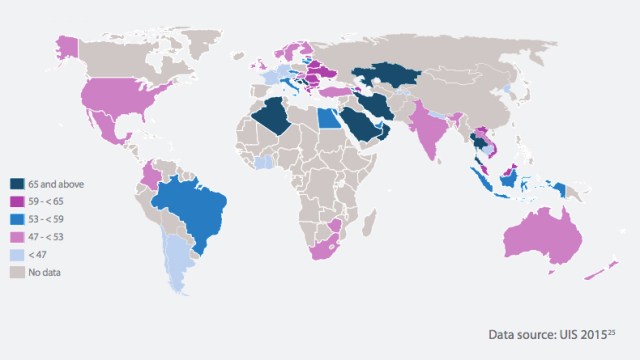Is it even possible to oppose capitalism anymore?

In today’s historical constellation, is the cupola limited to the Western affluent countries (and its copies all around the world), so that the proletarian struggle to break into the cupola is to be identified with the struggle against the scarecrow of ‘eurocentrism’?
Along these lines, in his ‘On the Twilight of the West’, Pankaj Mishra advocates ‘a return to the Ottoman-style confederal institutions that devolve power and guarantee minority rights’:
“In the 21st century, that old spell of universal progress – whether through Western-style socialism, or capitalism and democracy – has been decisively broken. The optimistic assumptions dating from the 19th century that these universalist ideologies and techniques will deliver endless growth and political stability cannot be sustained [. . .] The global crisis, which is as much moral and intellectual as it is political and environmental, puts into question above all our long submission to Western ideas of politics and economy. Whether it is catastrophic wars in Iraq and Afghanistan or disastrous interventions in Libya, the financial crisis of 2008, soaring unemployment in Europe, which seems like a problem with no solution, and is likely to empower far-right parties across the continent, the unresolved crisis of the euro, hideous income disparities in both Europe and the United States, the widespread suspicion that big money has corrupted democratic processes, the absurdly dysfunctional American political system, Edward Snowden’s revelations about the National Security Agency, or the dramatic loss of a sense of possibility for young people everywhere – all of this separately and together has not only severely depleted the West’s moral authority but also weakened its intellectual hegemony [. . .]

The west is the best. Get here…and we’ll do the rest. (ANDREW CABALLERO-REYNOLDS/AFP/Getty Images)
This is why its message to the rest of the world’s population can no longer be the smooth reassurance that the Western way of life is the best, which others should try to replicate diligently in their own part of the world through nation-building and industrial capitalism [. . .] Reflecting on the world’s ‘pervasive raggedness’, the American anthropologist Clifford Geertz once spoke of how ‘the shattering of larger coherences’ into ‘smaller ones, uncertainly connected one with another, has made relating local realities . . . with the world overall, extremely difficult. If the general is to be grasped at all,’ Geertz continued, ‘and new unities uncovered, it must, it seems, be grasped not directly, all at once, but via instances, differences, variations, particulars – piecemeal, case by case. In a splintered world, we must address the splinters’ [. . .] The Western path to modernity can no longer be regarded as ‘normal’; it cannot be the standard against which historical change in other parts of the world is measured. Europeans had created their own kind of modernity in the very particular historical circumstances of the 19th and 20th centuries, and other people have been trying since then, with varying degrees of success, to imitate it. But there are, and always were, other ways of conceiving of the state, society, economy, and the good life. They all have their own specific difficulties and challenges. Nevertheless, it will be possible to understand them only through an open and sustained engagement with non-Western societies, and their political and intellectual traditions. Such an effort, formidable in itself, would also go against every instinct of the self-regarding universalism the West has upheld for two centuries. But it will be needed if we wish to seriously confront the great problem confronting the vast majority of seven billion human beings: how to secure a dignified and sustainable life amid deepening inequality and animosity in an interdependent world.
These long passages are worth quoting since they render in a concise way the post-colonial common sense: we should recognize the failure of Western civilization as a global model, and the failure of those decolonized nations that tried to emulate it. There is nonetheless a problem with this diagnosis: yes, the lesson of post-9/11 is the end of the Fukuyama dream of global liberal democracy; but at the level of economy, capitalism has triumphed worldwide – the Third World nations that are now growing at spectacular rates are those which endorsed it. The mask of cultural diversity is sustained by the actual universalism of global capital. And this new global capitalism functions even better if its political supplement relies on so-called ‘Asian values’. Global capitalism has no problem in accommodating itself to a plurality of local religions, cultures, traditions. So the cruel irony of anti-eurocentrism is that, on behalf of anti-colonialism, one criticizes the West at the very historical moment when global capitalism no longer needs Western cultural values (egalitarianism, fundamental rights, the welfare state) in order to function smoothly, and is doing quite well with authoritarian ‘alternative modernity’. In short, one tends to denounce Western cultural values at the very moment that, critically reinterpreted, many of them can serve as a weapon against capitalist globalization. And vice versa, as Saroj Giri pointedly noted,
“it is possible that the immigrants who secure rights thanks to the anti-racist anti-colonial struggle might be securing the right to free capitalist enterprise, refusing to see, refusing to ‘open your eyes’, as the angry black yelled at the post-colonial immigrant. This right to free enterprise is another way to capital accumulation powered by the post-colonial entrepreneur: it produces ‘unfree labor’ and racialized class relations in the name of challenging the colonial rule of difference [. . .] There is a closet Ayn Randian class position underpinning the anti-racism of hyperbolic anti-colonialists – it is then not difficult to see that the non-modern, radical alterity upon which the anti-colonial is premised now stands for the capitalist universal.”

A sub-broker makes flower offerings before the statue of a bull outside the Bombay Stock Exchange (BSE) ahead of trading in Mumbai. (INDRANIL MUKHERJEE/AFP/Getty Images)
Giri’s last sentence should be taken in all its Hegelian stringency: the ‘concrete universal’ of today’s global capitalism, the particular form which overdetermines and colors its totality, is that of the ‘anti-colonial’ non-European capitalist.
Giri’s point is not simply to assert the primacy of economic ‘class struggle’ over other struggles (against racism, for sexual liberation, etc.) – if we simply decode racial tension as a rejection of class differences, such a direct displacement of race onto class is effectively a reductionist way of obfuscating the very dynamic of class relations. Giri refers here to Jared Sexton’s writings in the aftermath of the 1992 Los Angeles uprising, where he
“critiques scholars like Sumi Cho who argue that ‘the ability (of Korean Americans) to open stores (in black neighborhoods) largely depends upon a class variable.’ Hence, ‘many of the tensions (between these groups) may be class-, rather than racially based, actually rejecting differences between the store-owning Korean immigrants and the African-American customers.’ As Sexton shows, this class analysis does not have anything to do with class struggle as class is abstracted from any real unequal social relations. Secondly, ‘the mention of class-based relation is done in order to mitigate the resentment and hostility supposedly born of “cultural differences and racial animosities”.’ Thus for Cho, ‘the ability to open stores (Korean businesses) largely depends upon a class variable, as opposed to a racial one.’ A watered-down politically sterile notion of class is invoked even as the question of anti-black racism is diluted. Sexton calls this approach ‘subordinating the significance of race while pacifying the notion of class’ [. . .] This is where we encounter the familiar story of the post-colonial immigrants making great entrepreneurs and keeping the American Dream alive even as other ‘illegal’ and undocumented migrants are pushed to the bottom and even as a vast majority of blacks are reduced to not just marginalization and deprivation but ‘social death’ [. . .] this backhanded emphasis on class is a way to reduce the overdetermined status of the black poor to what looks like the natural outcome of (free) market relations.”
Do we not encounter here an exemplary case of the very reference to class being a means of obfuscating the concrete functioning of class struggle? Class difference itself can be the fetish which obfuscates class struggle.
The Western legacy is effectively not just that of (post-)colonial imperialist domination, but also that of the self-critical examination of the violence and exploitation that the West brought to the Third World. The French colonized Haiti, but the French Revolution also provided the ideological foundation for the rebellion that liberated the slaves and established independent Haiti; the process of de-colonization was set in motion when the colonized nations demanded for themselves the same rights that the West took for itself. In short, one should never forget that the West provides the very standards by means of which it (as well as its critics) measures its criminal past. We are dealing here with the dialectic of form and content: when colonial countries demand independence and enact the ‘return to roots’, the very form of this return (that of an independent nation-state) is Western. In its very defeat (losing the colonies), the West thus wins, imposing its social form on to the other.
The three types of subjectivity that, according to Alain Badiou, are operative in global capitalism, do not cover the entire field. There is the hegemonic Western middle-class subjectivity that perceives itself as the beacon of civilization; there are those possessed by the desire for the West; and there are those who, out of the frustration of their desire for the West, turn towards (self-)destructive nihilism. But there is also the global-capitalist traditionalism: the stance of those who, while fully participating in global capitalist dynamics, try to contain its destabilizing excesses by relying on some traditional ethics or way of life (Confucianism, Hinduism, etc.).
The European emancipatory legacy cannot be reduced to ‘European values’ in the predominant ideological sense, i.e., to what our media refer to when they talk about how our values are threatened by Islam; on the contrary, the greatest threat to what is worth saving from the European legacy are today’s (anti-immigrant populist) defenders of Europe themselves. Plato’s thought is a European event; radical egalitarianism is European; the notion of modern subjectivity is European; communism is a European event if there ever was one. When Marxists celebrate the power of capitalism to disintegrate old communal ties, when they detect in this disintegration the opening of a space for radical emancipation, they speak on behalf of the emancipatory European legacy. That’s why Walter Mignolo and another post-colonial anti-eurocentrists attack Badiou and other proponents of communism as all too European: they dismiss the (quite correct) idea of communism being European and, instead of communism, propose as the source of resistance to global capitalism some ancient Asian, Latin American or African traditions. There is a crucial choice to be made here: do we resist global capitalism on behalf of the local traditions it undermines, or do we endorse this power of disintegration and oppose global capitalism on behalf of a universal emancipatory project? The reason anti-eurocentrism is so popular today is precisely because global capitalism functions much better when its excesses are regulated by some ancient tradition: global capitalism and local traditions are no longer opposites, they are on the same side.
Let us take an example, one that challenges the stance that local customs are sites of resistance. In the autumn of 2016, a 55-year-old former pastor in Santiago Quetzalapa, a remote indigenous community 450 kilometers south of Mexico City, raped an 8-year-old girl, and the local court condemned him to buy the victim’s father two crates of beer. Santiago Quetzalapa is in Oaxaca state, where many indigenous communities are ruled by an idiosyncratic system popularly known as usos y costumbres (‘traditions and customs’), supposed to enshrine the traditions of diverse indigenous populations. Officials in usos y costumbres communities have previously used the framework as a pretext to exclude women from local government; for example, Eufrosina Cruz Mendoza, an indigenous woman, won the mayoral election, but was denied office by local leaders because of her gender. Cases like these clearly demonstrate that local popular customs are in no way to be revered as a form of resistance to global imperialism. The task is rather to undermine them by supporting the mobilization against these customs of local indigenous people themselves, as in Mexico where indigenous women are organized in effective networks.
—




